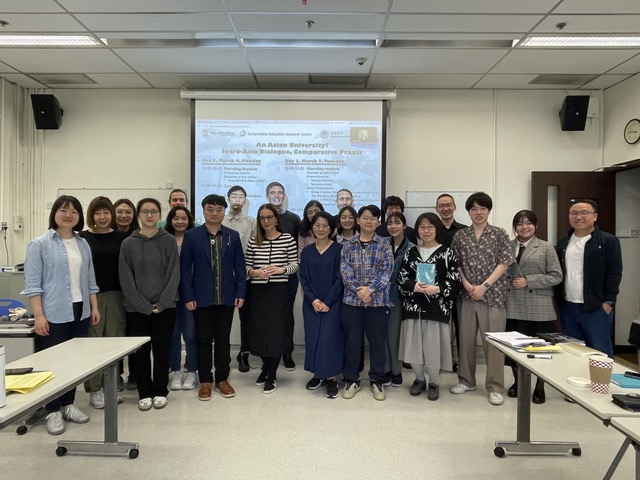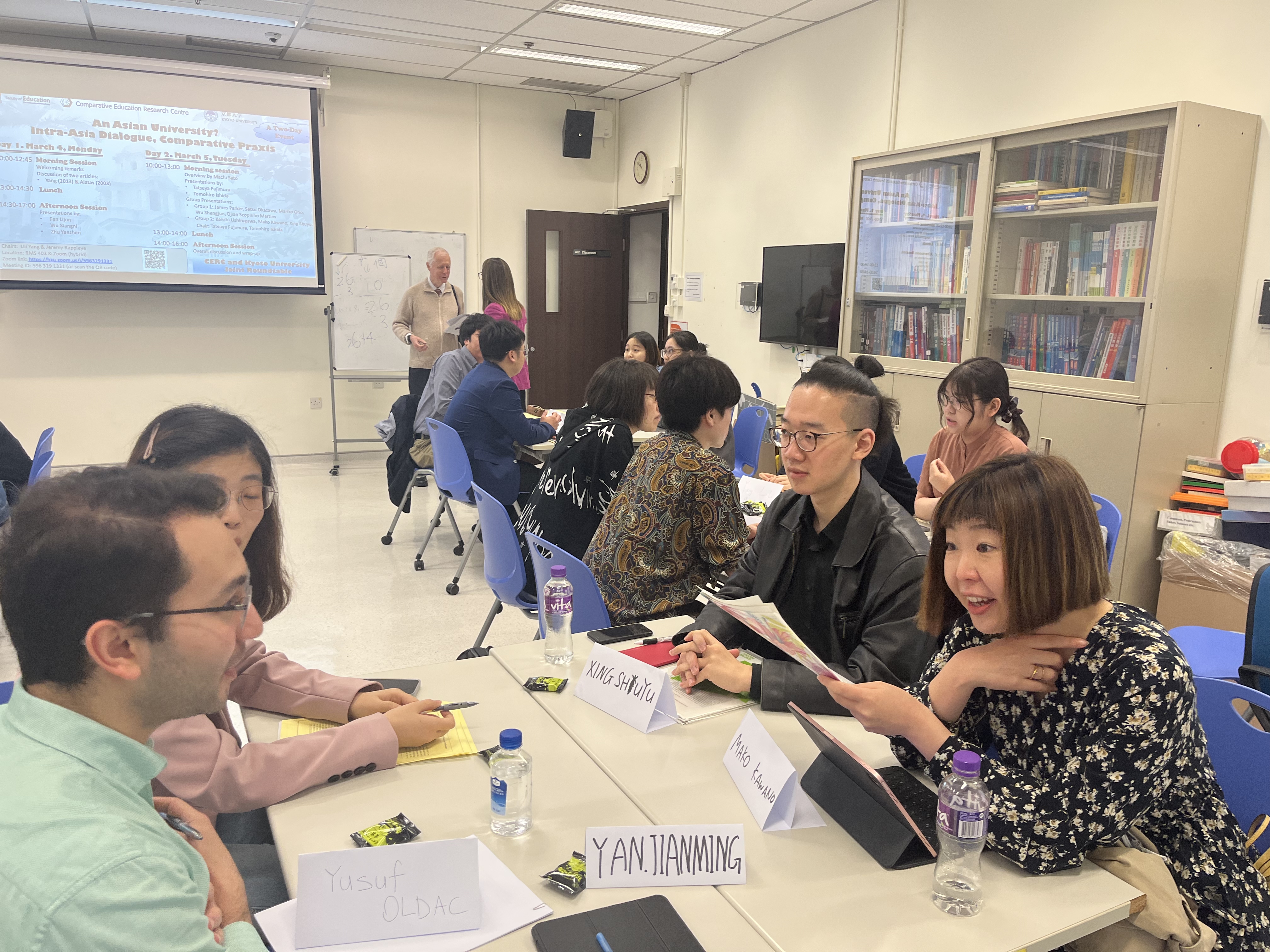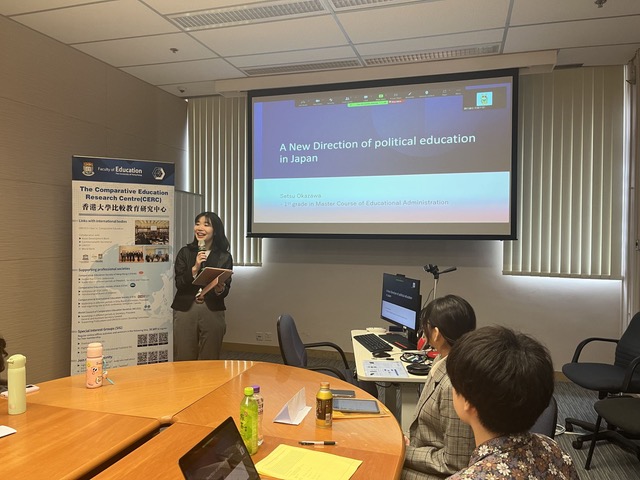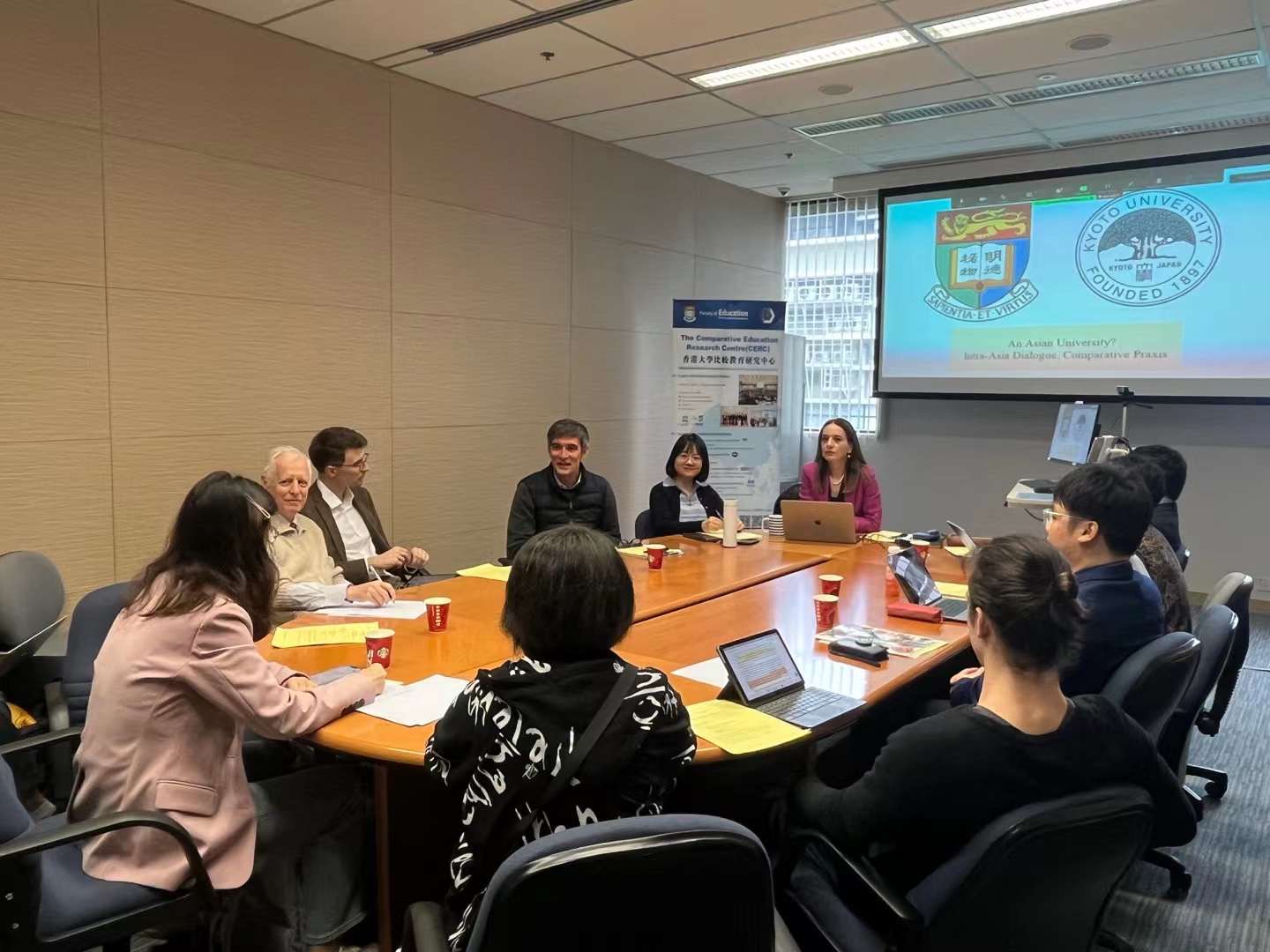Starting in 2023, the Global Education Office has launched the “Project in search of an Asian -style University”. The study group is promoted by the Comparative Education Research Center at The University of Hong Kong and the Higher Education Studies Course at Kyoto University. For more details on the project, please refer to the following report by Associate Professor Machi Sato, along with impressions from six participating graduate students.
Machi SATO, Associate Professor:
Starting this academic year, we have launched a new exchange initiative with The University of Hong Kong. Titled “Project in search of an Asian-style University,” we have already held two meetings. The project was conceived with the aim of exploring what place a university can become when rethinking knowledge, individual and society on the basis of Chinese and Japanese thought and philosophy, and how this eastern university might differ from one based on western thought and philosophy.
The first research exchange was held on December 12th, 2023, at Kyoto University’s Yoshida Izumidono (an overview of the meeting can be found here). With the participation of The University of Hong Kong’s professors Jeremy Rappleye and Lili Yang, the meeting was an opportunity to get to know about each other’s research interests and to share on the project’s inquiry.
The second section was held on March 4th and 5th, 2024, at The University of Hong Kong, which hosted the academic exchange conference ‘An Asian University? Intra-Asia Dialogue, Comparative Praxis.’ The conference was attended by faculty and graduate students from The University of Hong Kong’s Comparative Education Research Center, along with graduate students from Kyoto University’s Higher Education Studies, Clinical Philosophical Pedagogy, Curriculum & Instruction and Developmental Science, Education and Culture, Philosophy and History of Education and Comparative Educational Policies courses. The event featured discussions on designated papers, research presentations and whole group discussions (details on the presentations can be found here). The research presented at the conference included studies on ways for generating knowledge in China and Japan through the understanding of eastern philosophical thinking and concepts; attempts at reconsidering traditionally or historically transmitted educational practices; and efforts to capture the localization process of concepts introduced from the West. While the themes, methods and theories varied, a shared commitment to thinking through different lenses emerged among the participants. The conversation persisted during lunch, breaks and even after the program had ended, marking the beginning of a dialogue that transcends courses and universities. Moving forward, we hope to sustain this dialogue through continued online exchanges and in-person conferences.



